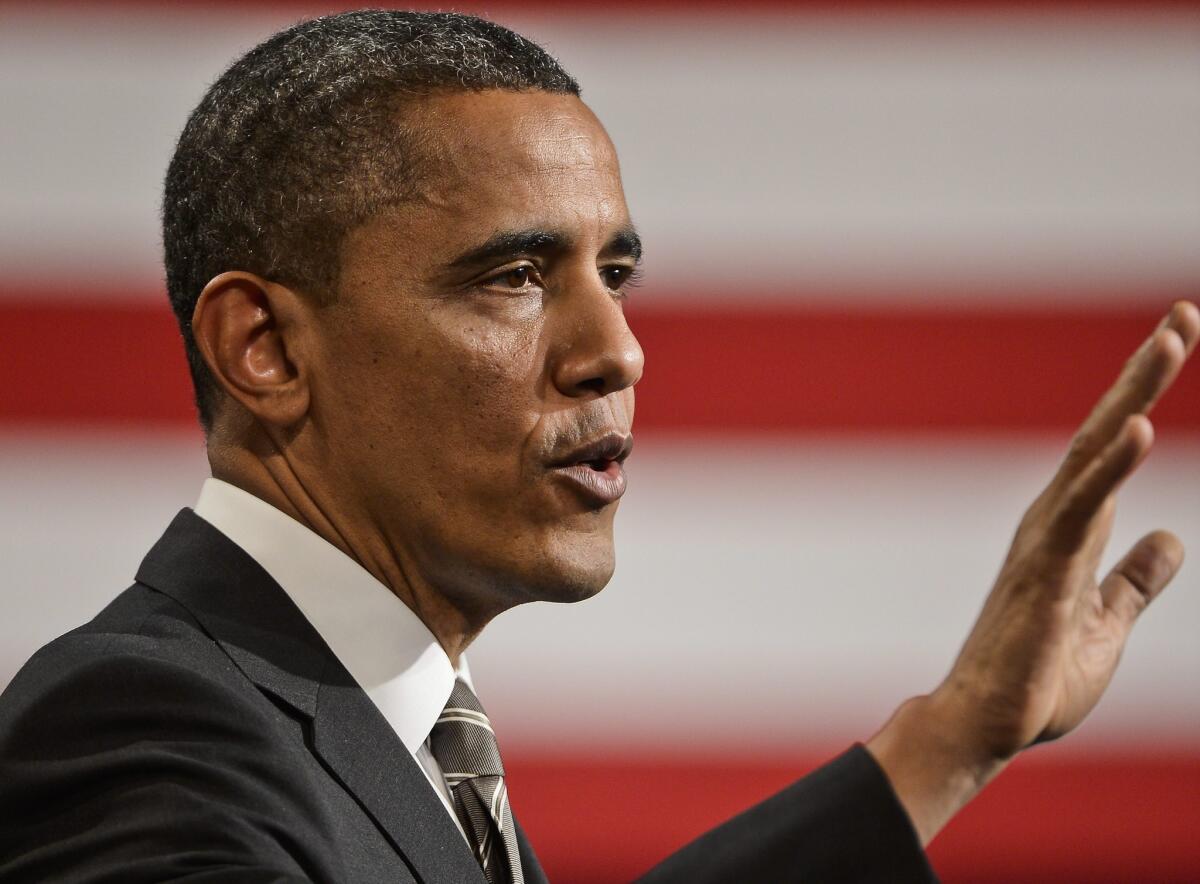Why we need to raise the minimum wage

- Share via
Nearly 8 million Americans go to work every day yet still live below the poverty line. That is in part because the federal minimum wage is too low.
Currently, an individual with a full-time job at the minimum wage and a family of three to support will fall below the federal poverty line. These workers, despite putting in regular hours, are struggling to provide basic necessities for themselves and their families. By allowing the minimum wage to remain at a nearly unlivable level, we have deemed certain jobs not worthy enough to meet even our country’s minimum standard of living.
How have we been able to keep wages so low without significant social discord? By using tax revenue and a complicated government bureaucracy to subsidize low-wage employers and supplement minimum-wage salaries. Rather than firms paying a worker’s true cost and customers paying an appropriate price for the services provided by those firms, the government provides workers with “income transfers” to help them meet basic needs. These include such programs as the earned income tax credit, food stamps and Medicaid.
These government supports mask a job’s true value and set an artificially low wage. They also represent the height of inefficiency. Raising the minimum wage means that the income required for basic needs is delivered in a one-step approach, via the paycheck directly from firm to worker, rather than requiring additional government expenditures.
Beyond efficiency, there is also the matter of human dignity. Think about it: After a long day on the clock, you come home knowing that despite your hard work, you can’t feed your family, cover their medical insurance or pay your rent without government support. What message does that send about the dignity of your work and the pride of taking personal responsibility for your family? Low wages push workers into shadow labor markets where they get paid under the table, avoid reporting income and evade tax responsibilities. Artificially low wages teach workers that their work is not valuable — a disastrous policy outcome.
In his State of the Union speech, President Obama called for raising the minimum wage to $9 an hour. That would be a start toward restoring dignity and value to low-wage work. But it isn’t enough. We propose raising the minimum wage, in stages, to $12.50 an hour, an amount that would allow an individual supporting a family of three to live modestly, at about 138% of the federal poverty line. That level offers workers a way to escape poverty, a chance to feed their families, buy basic medical insurance and live in secure housing without significant government support.
The most common objection to raising the minimum wage is that it destroys jobs. But a slew of recent studies have pointed out that although raising the minimum wage does increase earnings and reduce poverty, it has a limited, almost negligible, effect on employment. Studies have also illustrated that restoring the dignity of work through higher wages reduces worker turnover and increases productivity.
Some make the overstated claim that increasing the minimum wage would accelerate companies’ off-shoring of jobs. But most low-wage jobs today are geographically fixed, or as economists call them, “non-tradable.” A janitor or home-care worker’s job, for example, can’t be outsourced to China.
What is sometimes understated is the likelihood of low-wage jobs being automated, a real and growing threat. But if a small growth in the minimum wage is enough to move an industry to automation, it is likely that automation was coming in short order anyway. Technological progress is inevitable and further automation unavoidable. If raising the minimum wage leads to productivity gains through investment in automation, so be it. In the meantime, we need to reward American workers for their efforts.
Some argue that raising the minimum wage offers benefits to those who may not need them. This argument is also flawed. The Economic Policy Institute’s latest analysis shows that most low-wage workers live in low-wage households, and 84% of the workers in low-wage jobs are at least 20 years old. But, regardless of age or need, anyone who shows up to work and puts in hard hours deserves a wage that keeps him or her out of poverty.
Finally, critics of raising the minimum wage often suggest raising the earned income tax credit instead. But that would simply perpetuate the cycle of devaluing work. It also takes money out of the pockets of taxpayers rather than from the businesses that benefit from the credit, creating, in effect, a federal subsidy for low-wage employers. A higher minimum wage would help ensure that the earned income tax credit works more effectively and efficiently.
Raising the minimum wage is about reducing inequality, but it is also about restoring the true value of work. Every American’s hard work should be rewarded.
Andy Stern is a senior fellow at Columbia University’s Richman Center and former president of the Service Employees International Union. Carl Camden is president and CEO of Kelly Services and co-chairman of the board of trustees of the Committee for Economic Development.
More to Read
A cure for the common opinion
Get thought-provoking perspectives with our weekly newsletter.
You may occasionally receive promotional content from the Los Angeles Times.






